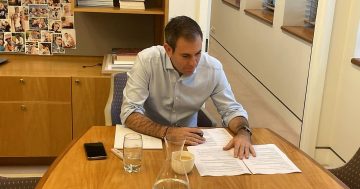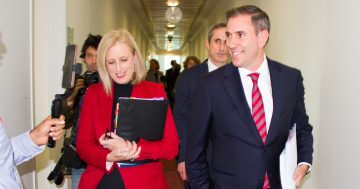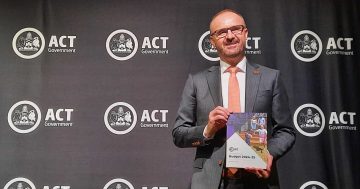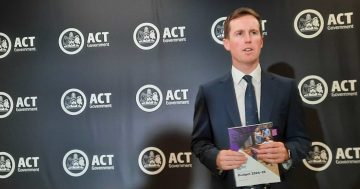
In just over 24 hours, the nation will learn what to expect in the year ahead when the eagerly awaited 2017-2018 Federal Budget is delivered by Treasurer Scott Morrison.
The silence has been deafening over the last few weeks. With an incredibly strict budget lock up and all leaks seemingly tightened, it’s likely we’re in for some big surprises.
Unfortunately for Public Service professionals, this could mean drastic changes and harsh cuts. Given the recent austerity, proposals from Barnaby Joyce and the Nationals to decentralise and relocate certain departments, and discussions surrounding further cuts, it’s a probable outcome. And though it pains us here in Canberra, the Public Service is an easy target for a government struggling for political credibility and hoping to win favour with the masses.
Another unfortunate easy target is university students. Recent speculation suggests that university funding will be severely reduced; student fees are set to rise; and HECS debts will be required to be paid back sooner. The planned changes, which were announced by Education Minister Simon Birmingham last week, have been met with fierce opposition from Labor, with Shadow Education Minister Tanya Plibersek labelling them “unfair”. However, the government is leaning on a report which found that universities receive enough funding to adequately teach most of their courses.
On the “no change” front, we’re expecting superannuation to be left alone. Substantial changes were already made as a result of the 2016 budget and passed in both houses of parliament last November. Most come into effect as of July 2017.
Over the past few weeks we’ve heard Treasurer Scott Morrison throw around terms like “good debt” and “bad debt” in order to distinguish between funding that contributes to the longevity of the nation, and debt incurred from band-aid spending that offers no long term benefits to the wider community.
This commentary is expected to translate into large-scale infrastructure spending, most of which will be brought forward from last year’s $50 billion dollar infrastructure program.
So will anyone benefit from a budget attempting to fix last year’s reported $37.1 billion deficit?
Well, small businesses look set to win with expectations that the $20,000 instant asset threshold increase will be extended. The government also seems quite focussed on payment cycles for small business, with COSBOA (Council of Small Business Australia) lobbying heavily to have regulations set on payment terms for small businesses working to big businesses. This would ensure that small business owners are supported in taking on larger projects and able to manage cash flow more effectively.
Education could be another winner, after the announcement of a $13.1 billion dollar funding increase. The changes serve to provide additional funding to disadvantaged schools, and outline cuts to overfunded, Catholic and independent schools. David Gonski has also promised a second major report into the way money is spent within the education system, aptly labelled Gonski 2.0.
With wages stagnant over the past decade and the cost of living increasing, we may also see some relief in terms of Medicare funding and availability for GPs.
Currently there is a freeze on GP bulk billing rates, but Labor and health advocates have been placing pressure on the Turnbull Government to remove it. There’s speculation that the change is likely to go through, however the question then becomes: Where will the estimated $2-3 billion required to lift the freeze come from?
Whatever the case tomorrow, with a difficult Senate in place we don’t expect anything that’s going to harm families too much. Most of the savings appear to be coming from deferring tax cuts for big business.
What do you think will happen in tomorrow’s budget?
Catchup on our LIVE coverage from Hotel Realm: Andrew Sykes from RSM Australia dissecting “The Rocky Horror Budget”. It was just a jump to the left for Malcolm Turnbull, but still a step to the right with continued attacks on public service pay growth and decentralisation. The impacts of the Budget for Canberra are in the detail – not the headlines.
Federal Budget 2017-18 – RSM overview.
Federal Budget 2017-18 – RSM pdf presentation.
2017 RSM Federal Budget Update Andrew Sykes
RiotACT was LIVE from Hotel Realm: Andrew Sykes from RSM Australia dissecting "The Rocky Horror Budget". It was just a jump to the left for Malcolm Turnbull, but still a step to the right with continued attacks on public service pay growth and decentralisation. The impacts of the Budget on Canberra are in the detail – not the headlines.
Posted by The RiotACT on Thursday, May 11, 2017
This is a sponsored article, though all opinions are the author’s own. For more information on paid content, see our sponsored content policy.




















